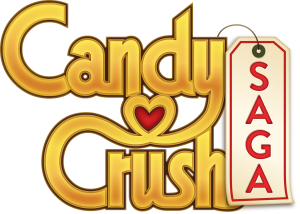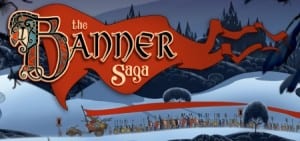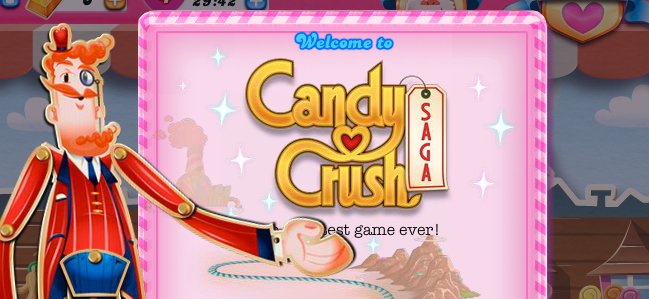The Saga Over Candy Crush Saga
 In 2012, King.com released Candy Crush Saga upon an unsuspecting public. It is a relatively straightforward puzzle game where one finds patterns in candy shapes to clear a board, earn points and advance to the next level.
In 2012, King.com released Candy Crush Saga upon an unsuspecting public. It is a relatively straightforward puzzle game where one finds patterns in candy shapes to clear a board, earn points and advance to the next level.
The game quickly became successful, shooting to the tops of app store rankings and having many complain about the addictive nature of the game.
However, in more recent months, the game and it’s company have been drawing a different kind of criticism, one dealing with intellectual property, in particular the trademark surrounding the name “Candy Crush Saga” itself.
Simply put, King has been making a strong, international push to trademark its games (and the words in their titles) and, along the way, has earned the wrath of other developers who accuse the company of not only trying to trademark common words, but in some cases, shut down those that they allegedly copied.
What started out as a fun game about matching candies has turned into a large, convoluted intellectual property mess that could prove to be a serious drain for a company struggling to convince investors it’s worth putting money into.
When Candy Crush Saga Met CandySwipe
In 2010, two years before Candy Crush Saga was released, Runsome Apps Inc. released a game named CandySwipe.
Those who have played Candy Crush may recognize the game’s mechanics, color and even feel as being similar to Candy Crush Saga. This include the candies that are used, as seen in the comparison below:

But despite being second to market, it was Candy Crush Saga that went on to become a hit. Where CandySwipe’s Facebook page has some 51,000 likes, Candy Crush Saga has over 61 million. It became so popular and ubiquitous that many thought CandySwipe was a knock off of Candy Crush, not realizing that the “imitation” game actually came first.
However, Albert Ransom, the President and Founder of Runsome Apps, didn’t begrudge Candy Crush Saga their success. That is, until the company tried to trademark the Candy Crush Saga name, a mark it felt would be confusing similar to its existing mark, which was filed in 2010.
The two sides went back and forth but, according to an open letter posted by Ransom, King recently acquired the rights to another game, Candy Crusher, an unrelated game that has been around since, according to King’s filing, 2004. According to that same filing, King is now attempting to use that trademark to cancel the already-granted registration for CandySwipe, which would make it so that CandySwipe not only has no legal grounds to use its name, but also can’t contest the registration of Candy Crush Saga.
In his open letter, Ransom says that King “wins” and that he doesn’t feel he can continue the fight against a much larger foe, especially one that is willing to go to such lengths.
But while the CandySwipe case may be King’s best-known battle lately, it’s far from its only trademark war.
The War Over “Candy”
 Truth be told, the war over King’s trademark started before the recent disputes. Even before the appeal period had ended, King had sent out cease and desist letters to a variety of game developers it felt was infringing on the trademark, including Stoic, a game studio that makes the game Banner Saga. However, Banner Saga is not a similar game at all and is, instead, a role playing game set in the viking era. Stoic uses the term in the traditional sense, meaning to represent a form of traditional storytelling common with viking lore.
Truth be told, the war over King’s trademark started before the recent disputes. Even before the appeal period had ended, King had sent out cease and desist letters to a variety of game developers it felt was infringing on the trademark, including Stoic, a game studio that makes the game Banner Saga. However, Banner Saga is not a similar game at all and is, instead, a role playing game set in the viking era. Stoic uses the term in the traditional sense, meaning to represent a form of traditional storytelling common with viking lore.
Despite the lack of similarities, King still petitioned the U.S. Patent and Trademark Office to oppose Stoic’s attempt to register a trademark on Banner Saga. The opposition on that case is pending.
However, it was similar action over the use of the word “Candy” that riled up developers the most. A group got together to launch Candy Jam, an online contest among developers to flood app stores with games that had “Candy” in the title. The contest, which ends today, has so far resulted in over 450 submissions, all that play on the word “Candy” in the title.
What impact, if any, this will have is unclear. However, it’s definitely a sign that the development community is not happy with King and those issues go well beyond the ones rooted in trademark law.
The Copyright and Plagiarism IssuesI
While King certainly has a reputation for strict enforcement of its copyrights, it also has a reputation for not being wholly original.
Though plagiarism and copyright infringement in video games is a difficult issue, many of King’s games have drawn criticism for being clones or near-clones of other popular games.
According to the Candy Jam site, King’s Bubble Witch Saga is a near clone to Bust-A-Move, a game that dates back to 1994 and King’s Papa Pear Saga is so close to Peggle, a game that dates back to 2007, that Touch Arcade once said, “Papa Pear Saga is pretty much an unashamed clone of Peggle.”
Many of King’s games seem to ride the fine line between inspiration and infringement, drawing heavily from previous games when it comes to mechanics, look and controls, but stopping short of using clearly copyrighted elements.
This is part of what gives Ransom’s arguments credibility. If King did pull heavily from CandySwipe (or any other game) in creating Candy Crush Saga, it wouldn’t be the first time or the last time they did so.
While this isn’t necessarily copyright infringement or even plagiarism (depending on your perspective), it’s clearly made a lot of developers and gamers uncomfortable and it operates in what is a likely legal and ethical gray area.
It also puts King’s aggressive trademark enforcement in a much different light. A company that is willing to mimic the feel and mechanics of other games but doesn’t want other developers to use the words “Candy” or “Saga” in trademark applications is, in a word, paradoxical.
While the law may give it the legal right to do all that it has done, it’s clear that the public and the development community has already passed a different judgment on the company and its policies.
Bottom Line
It’s clear that 2014 is going to be a crucial year for King. It announced just yesterday that, due to a lukewarm reception from potential investors, that it is postponing its planned initial public offering until at least 2015. Update: King announced today that it is moving ahead with its IPO.
As Candy Crush saga slides from the top of the app rankings and awareness, perhaps replaced in spirit by Flappy Bird before it that app was removed, King is going to have to focus on finding a new hit and new sources of revenue to get investors excited.
In that effort, headlines about trademarks, public protests and boycotts are unwelcome distractions.
While the success of Candy Crush Saga shows that a game can succeed even if it isn’t the first to reach the market, King is drawing more scrutiny then ever and its trademark practices are only further drawing attention to their alleged practices, this could make the success of Candy Crush Saga that much more difficult to repeat.
In short, King needs to remember that, when it comes to these kinds of disputes, there are two courts every company has to worry about: The court of law and the court of public opinion.
While the rules maybe clear and manipulatable in the first, they are much more ambiguous and harder to define in the second. That makes it much more difficult to navigate and, as many companies find out, the consequences of losing in it are often just as severe.
Want to Reuse or Republish this Content?
If you want to feature this article in your site, classroom or elsewhere, just let us know! We usually grant permission within 24 hours.
